Agriculture
-
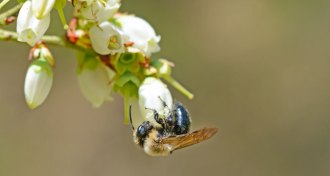 Animals
AnimalsHoneybees fumble their way to blueberry pollination
Blueberry flowers drive honeybees to grappling, even stomping a leg or two down a bloom throat, to reach pollen.
By Susan Milius -
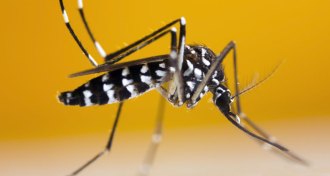 Animals
AnimalsEPA OKs first living pest-control mosquito for use in United States
Feds approve non-GM male tiger mosquitoes for sale as fake dads to suppress local pests.
By Susan Milius -
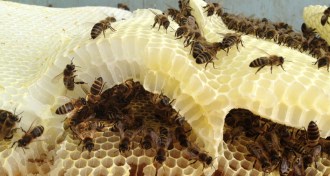 Agriculture
AgricultureMuch of the world’s honey now contains bee-harming pesticides
A controversial group of chemicals called neonicotinoids has a global impact, tests of honey samples show.
-
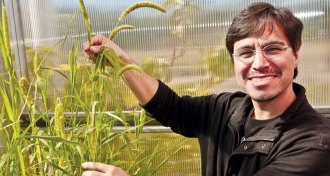 Plants
PlantsJosé Dinneny rethinks how plants hunt for water
Plant biologist José Dinneny probes the very beginnings of root development, which may have important implications for growing food in a changing climate.
By Susan Milius -
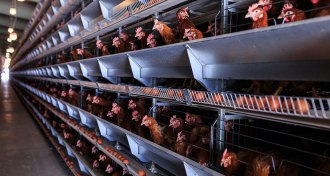 Agriculture
Agriculture‘Big Chicken’ chronicles the public health dangers of using antibiotics in farming
A new book takes a hard look at the chicken industry for its role in fostering antibiotic resistance.
-
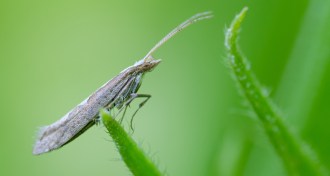 Agriculture
AgricultureGM moth trial gets a green light from USDA
GM diamondback moths will take wing in a New York field trial.
-
 Climate
ClimateClimate change might help pests resist corn’s genetic weapon
Rising temperatures may allow pests to eat corn that is genetically modified to produce an insect-killing toxin.
By Susan Milius -
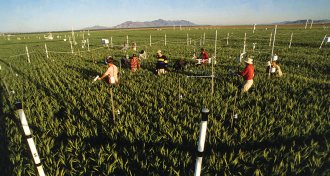 Climate
ClimateChanging climate could worsen foods’ nutrition
Climate change could aggravate hidden hunger by sapping micronutrients from soils and plants, reducing nutrition in wheat, rice and other crops.
By Susan Milius -
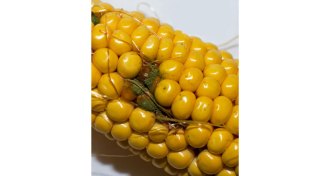 Genetics
GeneticsHow to grow toxin-free corn
Corn genetically altered to produce specialized molecules may prevent a fungus from tainting it with carcinogenic toxins.
-
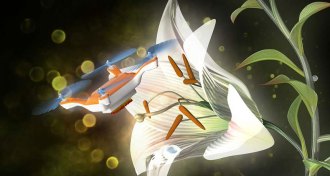 Agriculture
AgricultureFleets of drones could pollinate future crops
Chemist Eijiro Miyako turned a lab failure into a way to rethink artificial pollination.
-
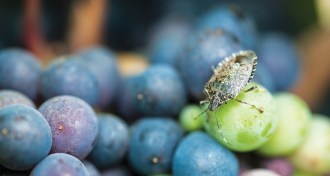 Animals
AnimalsToo many stinkbugs spoil the wine
Stinkbugs can ruin wine if enough are accidentally processed alive with the grapes. Three or fewer stinkbugs per grape cluster don’t have a noticeable effect on red wine.
-
 Anthropology
AnthropologyDNA points to millennia of stability in East Asian hunter-fisher population
Ancient hunter-gatherers in East Asia are remarkably similar, genetically, to modern people living in the area. Unlike what happened in Western Europe, this region might not have seen waves of farmers take over.
By Meghan Rosen